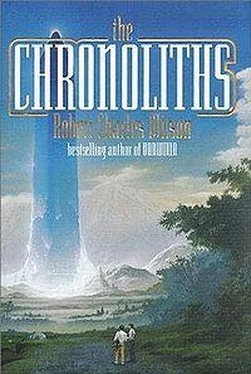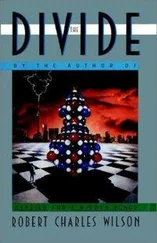But as I stood watching Easy’s Packages for evidence of police surveillance — fully aware that I wouldn’t recognize professional surveillance unless the Treasury Department happened to rent a billboard to advertise its presence — all those judgments seemed facile and naive. Hitch had asked me to show up at Easy’s, give his name, and take delivery of “a package,” which I was to hold until he contacted me, no questions asked.
Hitch was after all a drug dealer, though his beach trade had been confined to cannabis, exotic mushrooms, and the milder phenylethylamines. And Thailand was indeed a source country and established commercial route for the narcotics trade since the days of Marco Polo.
I wasn’t modest about intoxicants and I had sampled more than a few. Virtually every psychoactive substance was legal somewhere and almost all of it decriminalized in the liberal Western nations, but the U.S. in general and Massachusetts in particular were still heavily punitive when it came to the transportation of hard narcotics. If Hitch had somehow contrived to mail himself, say, a kilo of black tar heroin — and if his sense of humor extended to giving me custody of it — I might be paying for my ticket home with penitentiary time. I might not see Kaitlin without a sheet of wire-reinforced glass between us, at least until her thirtieth birthday.
Rain came down in a sudden, sheeting torrent. I ran across the street to Easy’s Packages, took a breath of damp air, and stepped inside.
Easy himself, or someone like him — a tall, intricately wrinkled, muscular black man who might have been sixty or eighty — stood behind a hardwood counter, guarding a row of aluminum mailboxes tarnished a foggy gray. He looked at me briefly. “Help you?”
“I’m here to pick up a package.”
“You and everybody else. Mailbox number?”
Hitch hadn’t given me a number. “Hitch Paley said there’d be a package waiting for me.”
His eyes narrowed, and his head seemed to rise a quarter inch in sudden indignation. “Hitch Paley ?”
From the tone of his voice this was already going badly, but I nodded.
“Hitch fucking Paley!” He thumped the counter with his fist. “I don’t know who the fuck you are, but if you happen to be talking to Hitch Paley, you tell that asshole our scores are not settled! He can keep his fuckin’ packages to himself, too!”
“You don’t have anything for me?”
“Do I have anything for you? Do I have anything for you? The toe of my fucking boot is what I have for you!”
I managed to find the door.
Thus the failed journalist, failed husband, and failed parent became a failed criminal.
Riding the AmMag coach out of Massachusetts, out of the urban corridor into shanty sprawl and dusky farmland, I tried to put these mysteries out of my mind.
Anything could have gone wrong between Hitch Paley and Easy’s Packages, but I told myself it didn’t really matter. I had done what Hitch had asked and I was frankly relieved not be carrying a butcher-paper-wrapped bundle of incriminating evidence. The only potential problem was that Hitch might (and in the near future) want his money back.
Midnight inched past in the rainy dark. I reclined my seat and contemplated the future. West of the Mississippi, the economy was booming. The new covalent processor platforms had enabled oceans of complex new software, and I was certain I could find at least an entry-level gig with one of the Silicon Ring NASDAQ candidates. Put my degree to use before it became obsolete. In time, I could pay Hitch back and null the debt. Thus crime engenders virtue.
In time, I imagined, I would become respectable; I would prove my worth to Janice and be forgiven, and Kait would come toddling back into my arms.
But I couldn’t help thinking of my father — seeing him in my own reflection in the rain-scored window. Failure is entropy, this specter seemed to announce, and entropy is a law of nature. Love becomes pain. Eventually you learn to ignore it. You achieve the nirvana of indifference. It’s not easy. But nothing worth doing is easy.
Hitch and I were among the first to witness the Chumphon Chronolith, and in the great conflation of time and mind that followed… well, yes, it has occurred to me to wonder how much of my own pessimism (or my father’s) I fed into that loop.
Not to mention a touch of madness on the maternal side. Cold air filtered into the darkened coach, and I remembered how fervently my mother had despised the cold. She had taken it personally, especially in her last years. A personal affront. She was an enemy of ice, plagued by snow.
She told me once that snow was the fecal matter of angels: it didn’t stink, being angelic in origin, but it was an insult nevertheless, so pure it burned like fire on mortal skin.
Tucking away my ticket stub in a jacket pocket, I noticed that the index number printed under the AmMag logo was 2,041 — same as the due date inscribed on the Kuin stone.
At the depot in Minneapolis/St. Paul I picked up the local news and a pop-science magazine with an article about the Chronolith.
The science magazine featured a number of photos of the Thai site, much changed from the day Hitch and I had visited it. A vast blankness had been bulldozed into the brown earth surrounding the pillar, and the cleared perimeter was pockmarked with tents, polygonal equipment sheds, makeshift laboratories, and an array of ochre-painted Porta-Potties. A multinational pool of scientific investigators had been installed by the Pacific Treaty powers, mostly materials scientists who were at this point admittedly baffled. The Chronolith was spectacularly inert. It seemed not to react with its environment at all, could not be etched with acid or cut with lasers; deep digging had not yet reached the roots of it; its temperature, at least since the icy blast of its arrival, had never varied from ambient by so much as a fraction of a centigrade degree. The tiling was spectacularly aloof.
Spectral analysis of the pillar had proved especially unrewarding. The Chronolith passed and scattered light in the blue-green portion of the visible spectrum and, inexplicably, at a few harmonic wavelengths both infrared and ultraviolet. At other frequencies it was either purely reflective — impossibly reflective — or purely absorptive. Net input-output appeared to sum to zero, but no one was certain of that, and even that putative symmetry defied easy explanation. The article went on to speculate about a wholly new state of matter, which was less an explanation than a confession of ignorance phrased so as not to disturb the smooth flow of investigatory funding.
Speculation about the legend inscribed on the Chronolith was even gaudier and even less enlightening. Was “time travel” really a practical possibility? Most authorities dismissed the notion. The inscription was then perhaps a form of stealthing, a clue designed to mislead. Even the name “Kuin” was spectacularly uninformative. If it was a proper name, it might have been Chinese but was more commonly Dutch; the word also turned up in Finnish and Japanese; there was even a tribe of indigenous Peruvians called the Huni Kuin, though they could hardly be held responsible.
The alternate possibility — that some Asian warlord a mere twenty years hence had created a monument to a minor victory and projected it into the recent past — was simply too ridiculous to be true. (If this seems shortsighted now, consider that the scientific community had already been forced to swallow a number of evident absurdities about the Kuin stone and understandably balked at this ultimate impossibility. People used the word “impossible” more freely then.)
Such was the consensus, circa autumn of 2021.
Читать дальше












